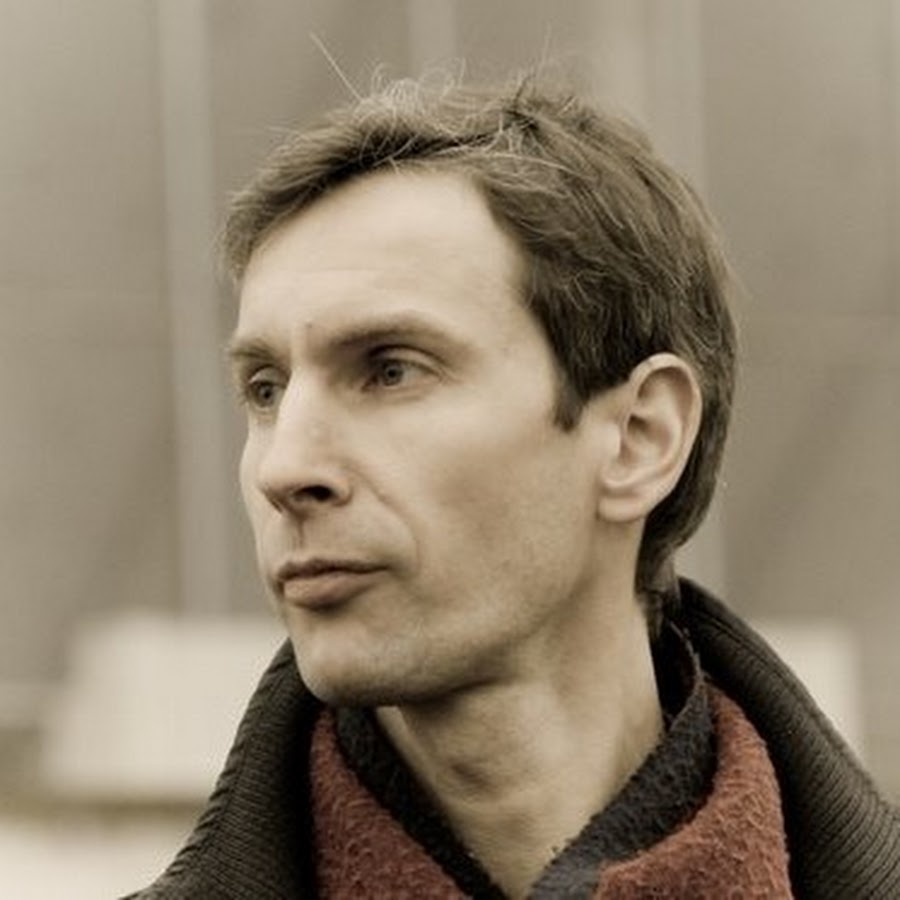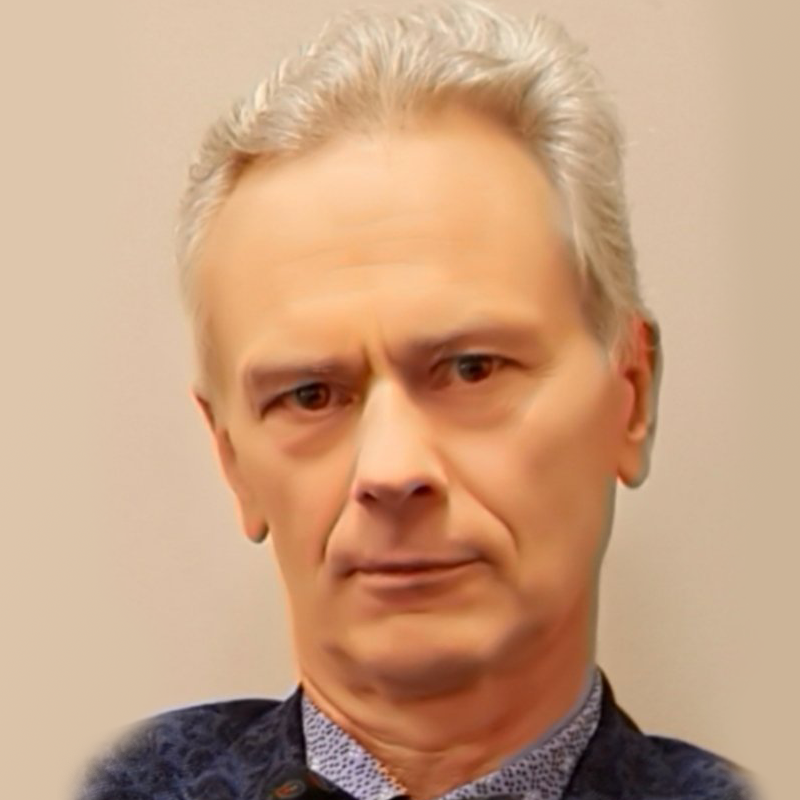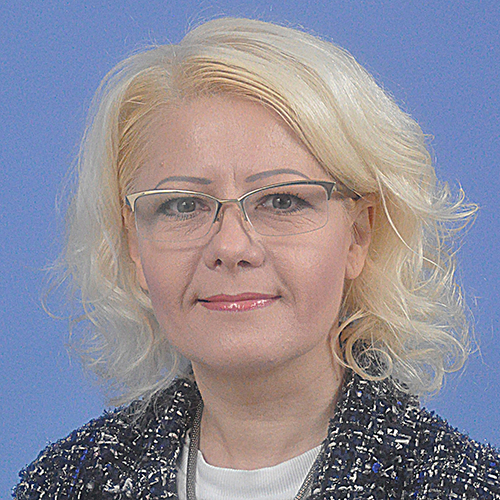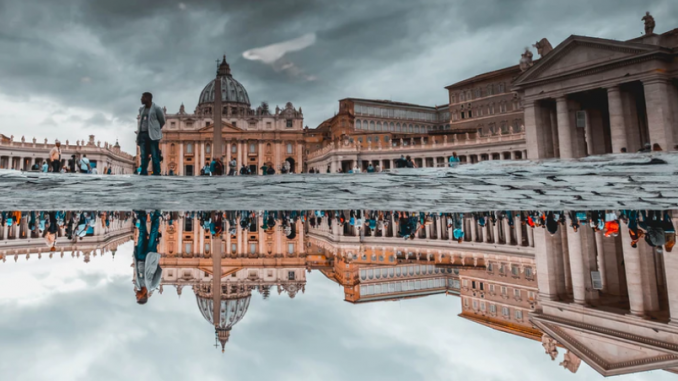Those engaged in strengthening global institutions can only be joined together by what they agree on, and that is not a vision of the good life and society based on Christianity, natural law, or any developed moral or cultural tradition.
The phrase “deep state” has been in the news lately, mostly in connection with the extraordinary resistance within the federal government to Donald Trump. The conception is sometimes extended to to the “deep church,” which the controversial Archbishop Carlo Maria Viganò portrays as a shadowy clerical network “that betrays its duties and forswears its proper commitments before God.”
What is this all about? The archbishop gives the situation a cosmic significance, as part of a battle between “the children of light and the children of darkness.” And we certainly have reason to believe that there are influential networks that put souls and nations at risk.
Even so, the cosmic perspective can be supplemented with a more purely human and institutional one. The expression “deep state” is originally Turkish, and refers to a network of military officers and others dedicated to maintaining the secular political order established by Kemal Atatürk. But the idea didn’t originate with the Turks. It’s basically an extension of old ideas such as “power behind the throne” and “imperium in imperio” to large modern bureaucratic states.
In that setting something of the sort seems inevitable. Career civil servants have their own concerns and ways of looking at things, and they believe they understand the situation, their jobs, and the proper purposes of the institution much better than the elected officials whose will they are theoretically charged with carrying out—let alone the voters who elected their superiors and pay their salaries. Also, bureaucracies are unwieldy, and people dealing with urgent problems inevitably find other less formal ways of making decisions. Put the two tendencies together and something like a deep state, a government within the government, is guaranteed.
In recent times the Church has become more like a large secular organization. Those who run her machinery have developed an understanding of their role and identity that is far less connected to Church tradition. The more managed and bureaucratic she becomes, and the more she cooperates with other large bureaucratic organizations, the more true that is.
That understanding differs from old-fashioned clericalism, which developed in a very different setting. Those who share in it include not only clerics but laity, many of them employed not by the Church but by institutions related to her. The basis of their claim to legitimacy is not divine charism but something much more modern and more like the secular conception of expertise. That is why we hear so much more about “experts,” “programs,” “educational materials,” and “best practices” in the Church than people once did.
Normally, something like a deep state isn’t all bad. Career employees do have special knowledge, and continuity of policy is important. In a system of government dealing with complex issues networks of officials can serve an important function by accumulating experience, coordinating efforts, and buffering short-term political demands. That’s one reason all governments maintain a professional civil service.
Even in the Church, it makes sense for the impulses and aspirations of a pope to be at least somewhat restrained by institutional experience and judgment. The authority given a pope means he must be circumspect in what he says and does, and the ecclesiastical equivalent of civil servants, who maintain institutional continuity, help him do so. If a pope makes an imprudent decision it is just as well if his subordinates limit its effect.
But today the situation is transformed by the growth of an interlocking professional and managerial class that runs the whole of Western society. In its upper reaches that class includes business leaders as well as judges, civil servants, lobbyists, journalists, academics, NGO officials, and members of the elite bar.
The connections among such people are symbolized by the famous “revolving door” through which high-level officials rotate among government, business, academia, and the non-profit world. These people are often married or otherwise related to each other. They increasingly go to the same schools. (Donald Trump is the first president since Ronald Reagan to attend neither Yale nor Harvard, the almae matres of all current Supreme Court justices.) The Internet has greatly increased their ability to discuss and coordinate strategy and messaging. And the most prominent meet regularly at events like the Davos and Bilderberger conferences.
In an ever-more-interconnected world, such people can hardly help becoming aware of their common interests and concerns, and of the advantages of cooperation. That awareness leads them to develop loyalties directed more toward the system as a whole than toward the particular country or institution by whom they are employed.
These tendencies are enhanced by the current emphasis on the need for common systems of governance to deal with issues such as global warming, epidemics, population growth, and the international movement of labor. That emphasis results at least in part from a general aspiration to a more integrated global order. If you want such a system for other reasons, you will likely draw attention to such dangers and the presumed need for global action to deal with them.
In recent decades Church leaders have increasingly attached themselves to such efforts. In the current papacy that tendency has become altogether dominant, as seen in efforts to downplay issues that put the Church in opposition to the secular governing consensus, emphasize interpretations of Church teachings, legitimate or not, that align with it, and generally coordinate efforts with international organizations.
That tendency appears to be supported by people within the Church—Archbishop Viganò’s “deep church”—who identify most fundamentally as part of the ruling professional and managerial class. In some cases the liberation of such people from what is specifically Catholic is evidently associated with liberation of darker tendencies within them.
But what should we make of all this? A cooperative global order that maintains peace, order, stability, and economic development doesn’t sound so bad. From that perspective, the Church’s attempt to ally herself with the emerging world order would reflect a belief that it is inevitable and desirable, and needs to be infused with Christian principles through the Church’s involvement.
But can such an effort be successful? Those engaged in strengthening global institutions can only be joined together by what they agree on, and that is not a vision of the good life and society based on Christianity, natural law, or any developed moral or cultural tradition.
Instead, it is a vision based narrowly on technology and economics that takes material well-being and security as its goals. Those goals aren’t moderated by any larger vision, and the effort aims at comprehensiveness, so all things must be subordinated to them. And that means enlisting everything in the service of the system considered uniquely suitable for advancing such things, a global technocratic order readily manageable by billionaires and bureaucrats.
So the world must be reconstructed on the model of an industrial process. With that in mind its population must be turned into components and raw materials for the machine: manageable, manipulable, and interchangeable. National, cultural, and religious traditions interfere with the transformation, so they must go. As we see around us today, history must be destroyed, monuments overturned, and even sexual distinctions, the basis of the family and therefore of society as traditionally conceived, utterly eradicated.
In such a system the Church cannot be allowed to be the Church: she would get in the way. The direction of events thus seems as alarming and even apocalyptic as Archbishop Viganò suggests.
Even so, the effort will fail through its own internal weaknesses. The technological approach to all things reduces knowledge to formal expertise, rejecting informal pattern recognition and the network of evolved expectations and understandings that makes up common sense. The result is that our rulers are losing touch with reality. At the same time, the lack of a sustaining vision of the good, and the consequent moral chaos, are increasing the influence of fear and hatred, energized and stabilized by lies, as organizing and motivating principles. The recent rioting has put that tendency on full display.
These trends do not bode well, and very likely there are stormy years to come as society becomes at once more anarchic, more tyrannical, and more incompetently run. How it all will play out is unpredictable. Even so, we know that insanity destroys itself while the principle of life endures. If the Church holds steadily to that principle she will prevail. And we are assured she will.














